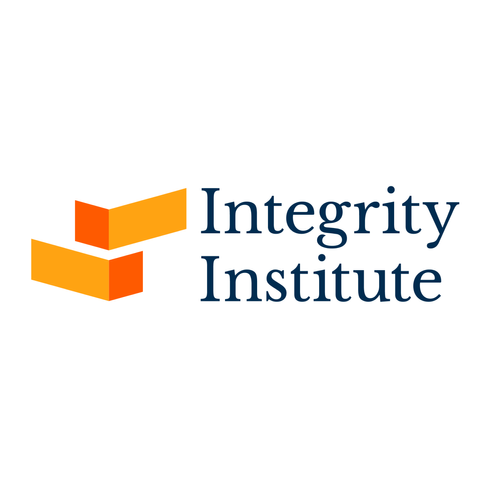What We’re Thinking
Integrity Institute members and staff are leading voices in the integrity field and bring years of technical expertise to tackling these problems. These posts represent their individual thoughts, analysis, and ideas about contemporary issues in the integrity space.

Global Elections Playbook: AI Edition
The influence of AI on the global election cycle is undeniable. While generative AI isn’t the sole determinant of election outcomes, its potential for misuse by nefarious entities cannot be ignored.

Child Safety Online
Integrity Institute delineates the best practices we advocate for Child Safety across all digital platforms.
Pixels and Protocols: A Journey from Gaming Nostalgia to Digital Responsibility
This is what draws me most to integrity work: its focus is on protecting people not just after harm has occurred, but also by building systems and policies aimed to prevent it in the first place and address its root causes.

Integrity Talks Series: How Platforms Engage Governments
This is the first of what we hope will be many conversations with Integrity Institute members and friends that aim to demystify some of the integrity topics that are most often cited as confusing or frustrating. Our goal here is “real talk” about issues that we frequently see misunderstood, dramatized, or which just haven’t been discussed in a useful way for someone who hasn’t worked on integrity issues day in and day out.

When AI Systems Fail: The Toll on the Vulnerable Amidst Global Crisis
Reactive measures to address biased AI features and the spread of misinformation on social media platforms are not enough, says Nadah Feteih, an Employee Fellow with the Institute for Rebooting Social Media at the Berkman Klein Center and a Tech Policy Fellow with the Goldman School of Public Policy at UC Berkeley.

How Generative AI Makes Content Moderation Both Harder and Easier
By Numa Dhamani and Maggie Engler
Content moderation was already an extremely difficult and thankless job, and with generative AI potentially increasing the quantity, quality, and personalization of adversarial content, is it borderline impossible for social media platforms to moderate content now?

Why Disinformation Campaigns are the Most Lethal Form of Modern Warfare
Disinformation campaigns aren’t new. In fact, before the era of social media, yellow journalism swayed citizen opinions on wars, politics, and the economic states of various nations. Disinformation campaigns led to the communist witch hunts of the 1950s and, post 9/11, to the unjust targeting of Sikhs and Muslims due to mistaken associations between Al-Qaeda and all Muslims. These campaigns have been present in every major election…

Diagnosing Networked Harassment in its Connection to Online Violence Against Women in Politics
By Theodora Skeadas and Hallie Stern
During the 2019 Indian general elections, researchers studied how organizers used a network of WhatsApp groups to manipulate Twitter trends through coordinated mass postings. The researchers joined 600 WhatsApp groups and found evidence of 75 hashtag manipulation campaigns in the form of mobilization messages with lists of pre-written tweets. During the election period, these campaigns produced hundreds of nationwide Twitter trends with the goal of influencing outcomes…


Election Deepfakes: What To Do About Political Media That Doesn’t Mean What You Think It Means
Integrity Institute members Eric Davis, Diane Chang, Lucia Gamboa, Amari Cowan, Swapneel Mehta, Nichole Sessego, and David Evan Harris submitted comments to the FEC in October 2023, requesting it to address the anticipated onslaught of deepfakes in 2024 US campaign advertising.

Reflection from 2023 DEF CON
Integrity Institute visiting fellows Rebecca Thein, Theodora Skeadas, and Sarah Amos share their reflections from attending 2023 DEF CON alongside Institute members.

Technology Companies Must Make Platforms Safer for Women in Politics
Integrity Institute visiting fellow Theodora Skeadas co-authored this piece that first appeared in Tech Policy Press.

How Much Has Social Media Affected Polarization?
Following the first published research from the 2020 Facebook and Instagram Election Study (FIES), Institute fellow Tom Cunningham shows that social media has probably not made a huge contribution to US polarization and how we can extrapolate estimates from the FIES to other effects of interest, specifically the aggregate impact of social media on the US over the last 20 years.

Comment to PCAST on Generative AI
In May 2023, the President’s Council of Advisors on Science and Technology (PCAST) launched a working group on generative artificial intelligence (AI) and invited public input. Integrity Institute visiting fellows Theodora Skeadas, David Evan Harris, and Arushi Saxena organized and – together with Institute members Diane Chang and Sabhanaz Rashid Diya – submitted comments to the PCAST.

Comment on EU AI Act
In April 2023, select Institute members addressed three main topics in their comments on the draft EU AI Act: examples of real life harms that have resulted from the use of AI systems; the categories of AI systems classified as “high risk”; and a draft methodology for auditing AI systems.

Unleashing the Potential of Generative AI in Integrity, Trust & Safety Work: Opportunities, Challenges, and Solutions
Select Institute members share their thoughts on the potential of generative AI in integrity, trust & safety work

Why AI May Make Integrity Jobs Harder
Select Institute members share their thoughts on why AI may make integrity jobs harder

Ranking by Engagement
Integrity Institute founding fellow Tom Cunningham shares his six observations on ranking by engagement on social platforms and – via original research – visualizes how platforms are trading-off between different outcomes.

Comment on Meta’s Approach to the Term “Shaheed”
In March 2023, the Oversight Board accepted Meta’s request for a policy advisory opinion on the company’s approach to moderating the Arabic term “shaheed” and solicited public comments. Select Institute members prepared these comments and the Institute submitted them to the Oversight Board on their behalf.

How the World Changed Twitter, in 25 Tweets
Integrity Institute member Theodora Skeadas offers an alternative list to the New York Times opinion column “How Twitter Changed the World, in 25 Tweets," putting global events and narratives at the center.

